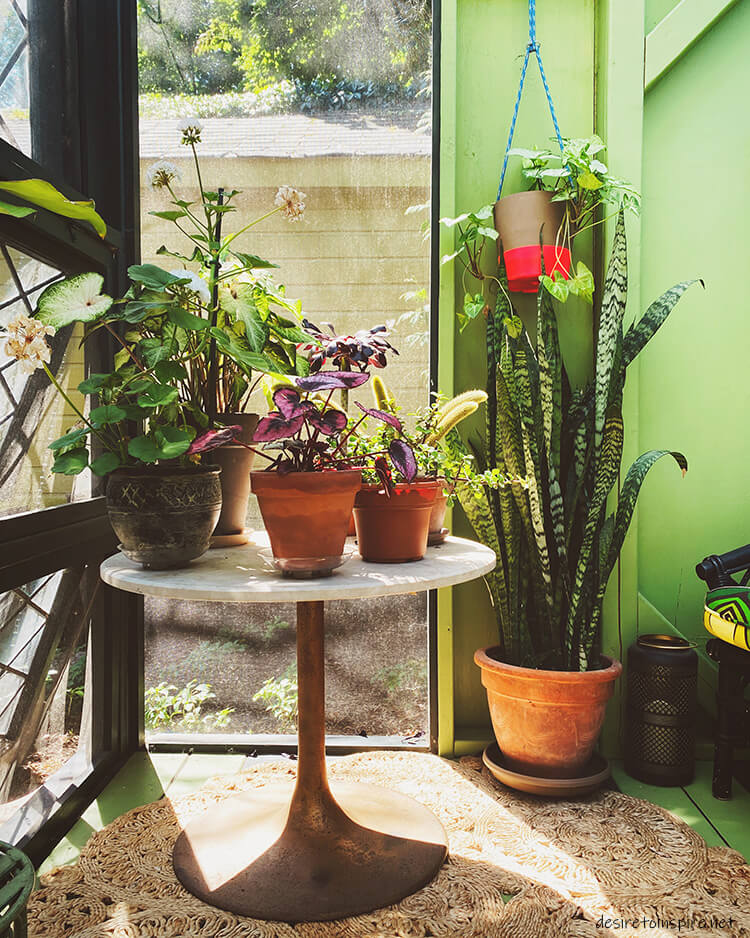Tips in Dealing with Musty Odours Coming from Your Aircon
Posted on Sun, 18 Jun 2023 by Guest

Maintaining a comfortable and healthy indoor environment is essential for our well-being, and a properly functioning air conditioner plays a crucial role in achieving this.
However, one common issue that can arise with air conditioners – whether you’ve got a split system, ducted system or something else – is the presence of musty odours, which can be unpleasant and even affect the air quality in our homes. If you’ve noticed a musty smell emanating from your aircon, don’t fret.
In this article, we will provide you with practical tips and solutions to effectively deal with these odours and restore freshness to your living space.
By understanding the underlying causes of musty odours, implementing regular maintenance practices, and incorporating do-it-yourself remedies, you can overcome this issue and enjoy clean, refreshing air from your air conditioner once again.
Additionally, we will discuss the importance of seeking professional assistance when needed and provide prevention tips to maintain a fresh-smelling environment. Say goodbye to musty odours and embrace a more pleasant and healthier living space with these valuable tips.

Understanding the Causes of Musty Odours
Unpleasant, musty aromas coming from your air conditioner can be indicative of underlying issues that need attention. By understanding the causes of these odours, you can effectively address the problem.
One common cause is moisture buildup in the air conditioner. When moisture remains stagnant within the system, it creates a breeding ground for mould and mildew growth, resulting in musty smells.
Additionally, accumulated dust and debris can also contribute to the odours, as they can harbour moisture and promote bacterial growth, particularly in ducted heating and cooling systems.
Understanding these causes helps emphasise the importance of regular maintenance and cleaning to prevent the buildup of moisture, mould and debris. By addressing these underlying causes, you can effectively eliminate musty smells and ensure that your air conditioner operates efficiently, providing you with fresh, clean air.
Regular Maintenance to Prevent Musty Odours
Prevention is key when it comes to dealing with stale odours from your aircon system. By incorporating regular maintenance practices, you can effectively prevent the occurrence of these unpleasant aromas.
One crucial maintenance task is cleaning or replacing air filters regularly. Dirty filters can trap moisture and promote mould and mildew growth, leading to these musty smells.
Additionally, it is essential to clean the condensate drain lines to ensure proper drainage and prevent moisture buildup. Checking and cleaning the evaporator coils is another important step, as dirty coils can accumulate dust and mould, contributing to the smell.
Lastly, don’t forget to remove any debris from the outdoor unit to maintain optimal airflow.
By implementing these regular maintenance tasks, you can keep your aircon clean to ensure fresh and pleasant air in your living space.
DIY Remedies for Musty Smells
There are several simple do-it-yourself remedies you can try before seeking professional help from a HVAC (heating, cooling and air conditioning) technician.
One effective solution is to use a vinegar and water solution for cleaning. Mix equal parts vinegar and water, then spray or wipe down the affected areas, such as the evaporator coils and drip pan, to eliminate mould and mildew and neutralise odours.
Another option is to use baking soda, which acts as a natural odour absorber. Sprinkle baking soda on the air conditioner’s filters and let it sit for a few hours before vacuuming or rinsing it off.
Additionally, you can introduce pleasant scents by adding a few drops of essential oils to your air filters or creating a homemade air freshener using essential oils and water. These DIY remedies can help combat unwanted odours and leave your air conditioner smelling fresh and clean.
Professional Help for Persistent Odours
If you’ve tried DIY remedies and are still struggling with persistent musty odours from your air conditioner, it may be time to seek professional assistance.
Professional HVAC maintenance can provide comprehensive solutions to tackle the underlying causes of the odours.
Hiring a professional air conditioning technician brings expertise and specialised tools to thoroughly inspect and clean your system. They can perform tasks such as deep cleaning the evaporator coils, sanitising the air ducts and checking for any hidden mould or mildew growth.
Additionally, they can identify and fix any potential issues that may be contributing to the odours, ensuring optimal performance of your air conditioner. Professional assistance is particularly crucial if you or anyone in your family have sensitive allergies or respiratory conditions that can be aggravated by poor air quality.
Don’t hesitate to reach out to professionals to address persistent stale odours and restore fresh and clean air to your home.
Prevention Tips to Maintain Fresh Air
Here are a few handy tips to help you keep the inside of your home smelling fresh and clean:
- Control humidity levels in your home by using a dehumidifier (possibly in combination with your air conditioner).
- Ensure proper ventilation and air circulation by opening windows and using fans.
- Regularly clean and replace air filters to prevent the buildup of dust, mould and odours.
- Keep the area around your outdoor unit clear of debris to maintain optimal airflow.
- Schedule regular professional HVAC maintenance to ensure the system is clean and functioning properly.
- Consider installing an air purifier or an air cleaning system to remove pollutants and odours from the air.
- Avoid smoking or allowing smoking indoors, as it can introduce persistent odours.
- Clean and vacuum your home regularly to minimise the presence of dust and allergens.
- Use natural odour absorbers like baking soda or activated charcoal in areas prone to odours, such as closets or near the air conditioner.
- When cooking or using chemicals, ensure proper ventilation to prevent odours from lingering in the air.
In Conclusion
Dealing with musty odours coming from your air conditioner can be a frustrating experience, but with the right tips and strategies, you can overcome this issue and enjoy fresh, clean air in your home.
By understanding the causes of musty odours, implementing regular maintenance practices and using DIY remedies, you can effectively eliminate the unpleasant aromas and improve the air quality in your living space.
Remember to seek professional help if the stench persists or if you have specific health concerns. Additionally, incorporating prevention tips such as controlling humidity levels, maintaining proper ventilation, and keeping your home clean can help prevent the recurrence of musty smells.
By taking proactive steps and addressing the issue promptly, you can ensure that your air conditioner operates efficiently, providing you with a comfortable and odour-free environment. Embrace these tips and enjoy the refreshing and clean air that your air conditioner can provide.
Decluttering for Luxury: How to Create a Minimalist and Luxurious Bedroom
Posted on Fri, 31 Mar 2023 by Guest

Is your bedroom lacking in the luxury department? Do you feel like you simply can’t fit everything into this tiny space while still feeling luxurious and calm? Believe it or not, achieving a minimalist and luxurious bedroom doesn’t require a complete renovation. All you need to do is focus on one thing: decluttering. Try adding a few key items to create an inviting atmosphere that screams “luxury” without sacrificing any comfort—or breaking the bank! Read on to learn how decluttering for luxury can turn your dull and cramped bedroom into an elegant and relaxing haven.
1. Invest in quality furniture pieces that will last – like a hardwood bed frame or luxurious velvet armchair
Investing in quality furniture pieces can make a huge difference in the atmosphere of your home, not to mention its longevity. What good is that trendy rattan armchair if it breaks a few months down the line? Go for something sturdy with star power. A classic wooden bed frame, for example, will last through the ages and give your bedroom an upgrade instantly. And why not try something luxurious while you’re at it? Try Eva’s Comfort Classic Mattress with a 365 day trial so there’s no risk involved either! Investing in quality doesn’t just make sense — it’s always worth it.

2. Use under-the-bed drawers, wall organizers, and shelving units as storage
You may maximize the space in your home by using storage options including under-the-bed drawers, wall organizers, and shelf units. With these straightforward techniques, you may tidy up your surroundings and keep everything more organized. Also, these options are perfect for hiding items so they don’t occupy room in your home. How well-organized your home is can be significantly improved by adding even a small amount of storage space.

3. Make a room appear larger by using mirrors
Mirrors are a simple but effective technique to provide the appearance of more space in a bedroom, making it seem bigger than it actually is. These not only allow you to break up vast, boring walls, but they also bring shine and beauty to the atmosphere. Mirrors, when combined with minimalist decor, may transform a compact bedroom into an extraordinarily sumptuous one, exuding an unrivaled sensation of airiness and relaxation.
Decluttering for luxury doesn’t come without a certain sense of satisfaction and accomplishment. You’ve taken the time to truly understand the kind of aesthetic you desire, the changes you need to make, and the amount of effort it will take to get there. This has been made infinitely easier with this guidebook as your beacon through the fog of bedroom decorating decisions. From articulating your taste preferences down to choosing texture accents, now you can make it all come together while still respecting minimalism in style. The end result will be nothing short of stunning — even if fewer items populate its space. Live luxuriously by transforming your room into a chic oasis free from clutter. Your efforts will be purposeful and transformative, so enjoy!
Home Office Accent Wall Ideas to Establish a Professional Look
Posted on Fri, 6 Jan 2023 by Guest
Many things have changed since the pandemic, and so has our work ethic. Because we’re spending more time working from home, it’s become essential to adjust our methods according to our needs. Creating a home office accent wall will bring that idea to life.
An accent wall is the main attraction in any premises. These walls provide you with an opportunity to add a special touch to an ordinary room. We’ve seen many different home office accent walls designs, yet the best one matches the whole theme of the house.
Give your accent wall a special touch by adorning it with printed wall art. Modern media such as custom aluminum signs will make your images look as good in print as they are in real life.
We have compiled the best home office accent wall ideas to freshen up your interior decor and set a lovely atmosphere.
Popular Home Office Feature Wall Design Concepts
The concept of a home office may be relatively new in home design. But there is no lack of inspiration thanks to innovative designers. Some of us may prefer a small neat corner in the living room while others may want a separate large dedicated workspace which makes it more comfortable to work from home.
No matter what your vision is, every home office design can have a pleasant accent wall. We’ve covered a few inspiring ideas for home office feature walls to help you establish a professional atmosphere.
1. Wallpapers
Wallpapers set the tone in any space. A floral print on an accent wall might help you relax while a neon print will energize your brain. This is why there’s no need to cover an entire space with wallpaper. Instead, redesign just one wall in the style you like to keep the decor in harmony. Use this medium to set the desired mood in any room. If you’re good with your hands, this DIY guide will help you apply wallpapers to an accent wall all on your own.
2. Decorative Elements
Another inventive technique to maximize the potential of the accent wall in your home office is adding decorative elements. Hang framed pictures or works of art on the wall for the best results. Adding some color will make it look jazzier and be suitable for people who are more creative. Themed decor elements also make beautiful options you can use to embellish your home for holidays.
3. Geometric Shapes
Geometric shapes are a chic approach to distinguish your home office. Triangles are frequently used in interior design, but there are many other forms to experiment with. Think of using squares, hexagons, or other shapes to decorate your main wall. We can list numerous examples of bold shapes and colors that breathe new life into the walls. There are no restrictions when it comes to colors. Make sets using different shapes and colors to produce a striking backdrop.
4. Art Walls
Showcase your character through impressive, bold art. Whether you decide to hang large abstract paintings or rustic wall art, it will reflect your sense of style. Incorporate your art preferences into the accent wall pattern to make a statement. There is no better method to calm your thoughts while working than by staring at artwork. Choose a grand work of art that covers a sizable portion of the accent wall. This idea requires very little work or preparation, but rest assured that when it is implemented, it’ll be a sight to behold.
5. Wood Designs
Wooden designs for accent walls can instantly add an air of sophistication, warmth and elegance to any space. This material can improve the overall feel of an indoor environment in a variety of ways. They can enhance acoustics and moisture absorption as well as inhibit some microbes. With a wooden accent wall, vintage, rustic or even modern and minimal designs will look great. They’ll also add a sense of calm, focus and serenity.
Useful Tips for Outstanding Home Office Accent Walls
Countless ways exist to create the perfect accent walls for a home office. The most important rule is to establish a space that’s both functional and beautiful. Still, be careful when making color and material choices for the wall. Explore some common guidelines to aid you in your quest:
- DO: Think outside the box. Move beyond simple hues. Experiment with stripes or polka dots. Use metallic colors to define a bold style.
- DON’T: Ignore texture. Try different ones instead. Create a wall covered in fabrics, a gallery of photos or anything else.
- DO: Design a feature wall in an area with neutral tones. The thought of an accent wall initially evokes visions in vivid blue or red. In a neutral color scheme however, a dark brown wall will produce a striking effect.
- DON’T: Refrain from using vivid colors. The color of an accent wall is not subject to any particular rules. You can choose any hue that makes you happy as long as it complements the other elements placed in the room.
- DO: Take the color of the other walls into consideration. Usually, light to medium-shaded walls look best next to accent walls. An accent wall will appear nice but daunting in an all-white office as well. Its contrast can give off a modern vibe, yet it might come out as being too jarring.
Health By Design: Using Your Environment For Your Wellbeing
Posted on Tue, 8 Nov 2022 by Guest
When it comes to your health, there are definitely a lot of things that can affect it. For instance, your diet and your lifestyle can have a major impact on how you feel, and neglecting either (or both!) of them can wind up hurting you in the process. Conversely, making your health a priority can have numerous benefits for you, allowing you to live a better, more robust life.
However, did you know that your environment can actually be a significant contributor to your wellbeing? This isn’t just about avoiding pesticides in the air around you or veering away from garish upholstery, either. In fact, research has shown that your immediate environment can impart direct and far-reaching benefits to your health, and choosing specific elements can have notable positive effects.
Even better, you don’t even have to break the bank to test out certain design ideas, either. Many can be quite affordable, meaning that you have no excuse to not try them. If you’re looking to find ways to help boost both your physical and mental health, why not take a look at the room around you? By choosing one – or more! – of these specific design options, you can start making your health a priority once more.
Embrace Your Green Thumb
Sure, admiring your garden after you’ve carefully pruned away rogue thorns or wilted petals can make you feel a tinge of pride and even admiration, but did you know that plants can also give you quite a few health benefits, too? Studies have shown that having potted plants and flowers scattered throughout your home can help reduce both your stress and your cortisol levels.
Why does this matter, though? Cortisol is your body’s stress hormone, and if it is left elevated, it can start leading to a myriad of harmful health conditions. These can range from everything to insomnia (in the short-term) to even cardiovascular disease (in the long-term). Finding ways to reduce these levels, therefore, can help improve both your quality of life and your longevity.
Some of the other benefits of having plants in your home include better air quality and sharper focus. Because plants can help draw environmental toxins out of the air, which means that the air that you breathe in can be that much better for you. Plants can help you recover from any existing illnesses, too, allowing you to get back on the mend that much faster.
Sweat Out the Toxins
There’s nothing quite like sitting in a steamy sauna after exercising to help you recover your muscles and bring them back up to par after you use them. However, the benefits of enjoying a session in a sauna are more than just that. Yes, they can help you feel invigorated after you have a good workout, but they can also help bolster your general health, too.
Research has shown that enjoying time in a sauna can also help you relax (reducing those dangerous cortisol levels), improve your circulation (allowing you to enjoy better cardiovascular health), and it can also help encourage your thyroid to work at optimal efficiency by raising your core temperature and reducing the amount of effort that your thyroid expends.
The signs of an impaired thyroid include feeling cold all the time, thinning hair, and constant fatigue. While it’s important to not self-diagnose your thyroid health, being aware of these symptoms can get you back on track to optimal wellness. Scheduling an appointment with your healthcare provider, or undergoing at-home thyroid testing, can give you the answers you need.
Let In Natural Light
Natural light is another one of those not-to-secret ingredients for a healthy life, but it’s not one that we all realize is so important. That said, designing your home to let ample natural light filter in through the windows can help create significant improvements in how you’re feeling. The first benefit is the most obvious: natural light is beautiful, and it can help make your home look more beautiful, too.
That’s not the only advantage of letting in natural light, though. Another key benefit of enjoying those lovely rays of sunshine is that it can help your body produce more vitamin D. This vitamin is essential and works to help make sure you don’t get sick as easily. Being deficient in it, though, can affect your mood and your health and lead to feelings of depression and malaise.
While dazzling natural light can seem counterintuitive toward getting a good night’s rest, it can also actually help manage your circadian rhythms. This means that when the sun does slip beneath the western horizon, your brain can more easily make the transition to alertness to prepare for a good night’s rest. All in all, the importance of natural light simply cannot be overstated.
Make Sleep a Priority
Finally, if you’re looking to design your home with your health in mind, then you should absolutely take a closer look at your bedroom and how it’s currently designed. Many people focus on style over function when decorating their bedrooms, but what you should really be doing is merging these two concepts to turn your quarters into an inviting sleep oasis.
The dangers of poor sleep are well-documented and unambiguous. Studies have shown that not getting enough sleep can affect your mood and your mental health, leading to depression. It can also raise your cortisol levels, making you more susceptible to long-term health issues in the months and years ahead of you. Chronic insomnia has also been implicated in cognitive decline in advanced age.
Ways to help improve the ambiance in your bedroom include focusing on the layout, swapping out your bedding, and using blackout curtains. For instance, feng shui has historically been used to create a better mood. Using breathable bedding with natural fibers can help you sleep better without overheating you, and blackout curtains mean fewer sleep interruptions and longer rest.
Designed For Good Health
Trying to stay healthy can be challenging in today’s modern, hustle-and-bustle world. Between your career and your personal life, it can easily get overwhelming and your health can fall by the wayside. But by taking charge of the things that you can moderate, you can help ward off many of these issues. Not only will you have a more beautiful and inviting home in the process, but you’ll also enjoy better wellbeing, too!
9 Crucial Questions to Ask a Roofing Contractor Before Hiring Them
Posted on Tue, 18 Oct 2022 by Guest
A roofing system repair or replacement is an essential and costly investment. The roof contributes to the aesthetic appeal of your home, increasing your property’s value, not to mention protecting your home from external elements.
However, when a roofing repair or replacement project is not handled appropriately, your home will sustain extensive exterior and interior damage, and you could incur significant expenses in correcting the mistake. For this reason, you should leave all your roofing projects to a professional contractor instead of going DIY. An expert can ensure the job is done well.
Determining whether you are hiring the best roofer before signing the contract can be challenging. Read on for nine questions to ask a roofing contractor before hiring them for roof repair and replacement.
1. What kind of work do you do?
Your roofing system is the primary defense against external elements, including mold, mildew, and moisture. For this reason, you want to entrust repair and replacement to someone who specializes in roofing, not a general contractor. An expert in roofing has extensive knowledge and skills in repairing or installing new roofs, so you are guaranteed a quality job.
Be sure to avoid contractors with general knowledge about outdoor home improvements. Instead, opt for a company such as Landmark Roofing with an extended track record of repairing and installing new roofs, job after job.
2. Are you licensed?
Most states require contractors to have a license before handling any projects, so you should establish that the potential roofer is licensed before hiring. A permit shows the roofing system contractor has undergone the required training and performed well in the competency tests, so they qualify to take on any roofing project.
Be sure to request potential contractors to provide verification of their licensing requirements to enable you to stay clear of roofers who may be cutting corners. Hiring a contractor not eligible for a legal license could leave you with unsatisfactory results and make you vulnerable to legal suits for not complying with your local building codes.
3. Are you insured?
Roofing system repair and replacement are among the most dangerous home improvement projects. The contractors and their employees are susceptible to slips and falls and sustain severe injuries when handling your project. If the contractor does not have insurance coverage, you will likely assume the liability for medical expenses.
The contractor could also damage your property when handling the roofing system project. If they do not have insurance to cover the damage, you will have to fund the repairs or spend a lot of time and money on a fruitless lawsuit. For this reason, demand that potential roofing contractors provide proof of their liability and worker’s compensation insurance coverage.
4. Will you be handling the project?
Some roofing contractors maximize their profits through subcontracting. Subcontracting involves winning a contract and selling it to another roofing company at a discounted rate. This way, the roofer still gets proceeds from your project while handling another job. Be sure to ask a potential contractor whether they intend to pass your job to someone else before hiring. This will ensure the roofer you hire will be the one that shows up for the project.
5. Is your business local?
If you search for a roofing contractor online, you will likely get leads to professionals from across the globe. However, you should ensure you only hire a local contractor. This is because a roofing contractor within your region is familiar with your local building codes. This means they will handle the project in the confines of local rules and regulations, protecting you from legal implications. The local authority is also less likely to demand that you halt or demolish the roofing system project if you comply with your region’s building codes.
6. How long have you been in business?
You will likely establish how long a specific roofing contractor has been in business from their website. However, if you cannot determine this information by browsing through their site, do not hesitate to ask them during the interview. It is best to work with a contractor who has been in the industry for an extended period as they are more experienced.
However, it is worth noting that some contractors open their businesses, handle a few projects and stop operating for a couple of years because they cannot sustain the business or due to lawsuits. Hiring such a roofing contractor could mean you will have no recourse should you discover faulty installation or your roof leaks. For this reason, partner with an established company with a proven track record to ensure upfront quality and continued support.
7. Can you provide some references and reviews?
An effective way to establish you are working with a credible roofing contractor is by checking reviews and testimonials from previous clients. Reviews and testimonials show customers’ experiences working with a specific contractor, enabling you to make an informed decision. You can find online reviews on Better Business Bureau or Google.
Consider asking a potential roofer for references if you prefer a physical roof inspection. A physical inspection can help you decide whether or not a specific contractor’s quality of work suits your needs. Be wary of contractors who do not provide references.
8. How will you protect my property?
Apart from establishing your contractor has liability insurance coverage, you should determine other measures they intend to take to protect your property. Before signing the contract, ensure you understand how the contractor will protect your landscape and driveway from roofing refuse and vehicles, shield gutters from ladders, and clean up nails and material waste. You should ensure you will not have to worry about more property damage at the end of the roofing system project.
9. How much will my roofing system project cost?
Before signing the contract, you should establish your project’s cost. Roofing contractors differ in price ranges, so you need to partner with a professional that fits your budget. Be sure to ask for a free estimate of your project, then compare and contrast pricing to settle for an affordable roofer.
Endnote
Hiring the right contractor is the first step to investing in a high-quality roof for your home. Before hiring, conduct in-depth research on the roofing companies within your state and ask the above questions when interviewing potential contractors to get the right level of service.









